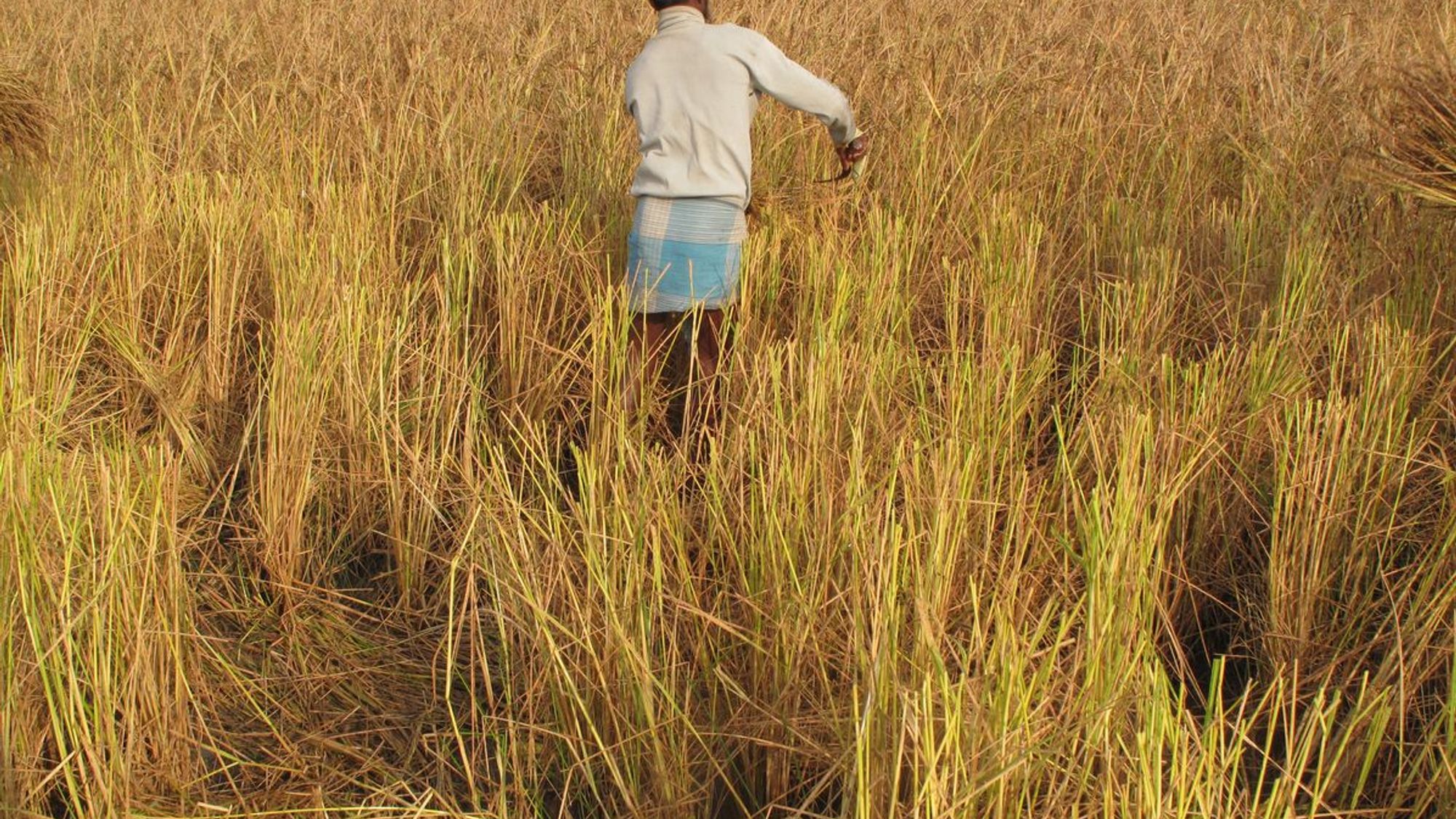Partnerships are commonplace in a business environment – often with buzzwords such as expansion, efficiency and economic gain as the desired end point. But a new wave of business researchers are collaborating on projects with real-world outcomes that often have little to do with an improved bottom line. How can unexpected research alliances generate unexpected research outcomes?
Each year, more than 2000 people apply to Australia’s premier science research organisation, the Commonwealth Scientific and Industrial Research Organisation (CSIRO), to work in Antarctica. These applicants are whittled down to a shortlist of 200, from which just 75 coveted science and trade positions are filled.
But every year, after just one mission, about 60 per cent of the year’s cohort, who have been meticulously selected by CSIRO’s intensive assessment program, choose not to return to the icy continent. It could be the isolation or the darkness. Perhaps the unpredictability and extreme weather, or the sub-zero temperatures.
Whatever it is, Monash Business School’s Dr Peter Holland* plans to find out.
Bringing a new perspective to the research process
Dr Holland, a management researcher, has embarked on a collaborative research project that aims to help CSIRO reduce its turnover level at its Antarctica station by determining the key factors that inspire that 40 per cent of staff to want to return to Antarctica. He’ll also spend a year working on recruitment processes with CSIRO.
“We want to find out why so many people are eager to go to Antarctica but don’t want to go back again,” says Dr Holland, who specialises in human resources and extreme environments.

The study will approach its research questions from a potentially illuminating point of difference; a human resources perspective. Previous research has tended to concentrate on the psychological impact of challenging jobs on the individuals, rather than taking a comprehensive, whole-of-experience approach.
According to Dr Holland, continuous darkness can impact on sleep patterns and mood. Satellite technology’s enabling of internet access in the remotest of environments can also backfire for Antarctic workers; it’s no fun to see your Facebook feed filled with posts by friends enjoying normal life while you battle cold, isolation and cramped conditions.
He thinks human resources teams need to be involved across all stages of the employee experience, from pre-departure to return and reintegration.
“These types of assignments require not only the right people for the jobs but high levels of teamwork and resilience in extreme personal and environmental conditions,” he says.
“In these environments if you get the team wrong, people could die.”
The outcomes of this study are likely to be useful in choosing the best people to work in other extreme environments too, such as space, and in developing appropriate human resources strategies to support this kind of work.
Unexpected alliances key to unexpected outcomes
Dr Holland is an Associate Professor in Human Resource Management and Employee Relations in the Department of Management at Monash Business School in Melbourne. It’s one of 11 departments and research centres located at the school, which is accredited as one of the world’s top business schools.
“At Monash Business School, we aim for impact. Our vision is to be recognised as one of the world’s leading business schools,” says Professor Gary Magee, Professor of Economics and Deputy Dean (Research) in the School’s Faculty of Business and Economics.
“Many of our projects transcend what is commonly thought of as business research, confirming the Monash Business School mission of having an impact on a changing world with research that aims for global relevance.
“But more than that, throughout our work, we believe we can have discernible impacts in helping to make our world a better place for all. Our research recognises that today’s business problems are often complex and multi-dimensional, with origins and impacts beyond the domain of business.”
Forming research alliances with non-financially grounded researchers is a fundamental part of achieving such impacts.
An alliance with the potential to improve lives all over the world
People eat a lot of rice. In 2016-2017, about 475.64 million metric tonnes of rice was consumed globally. In developing countries such as Bangladesh, it’s a dietary staple of rich and poor alike.
“Rice is very important to the whole country,” says Dr Asadul Islam, a development researcher who was born and raised in Bangladesh. “Even the rich people eat rice three times a day. We don’t say we had dinner, we ask: did you have ‘nice rice’?”
But rice production demands time and considerable resources. Is there a way to produce more rice to feed more people? An alliance of researchers that includes Dr Islam, who is an Associate Professor at the Department of Economics at Monash Business School, says yes. And now, they’ve got the research data to prove it.
Together with a team of collaborators from a non-governmental organisation in Bangladesh, BRAC, and Cornell University, the Indian Institute of Technology Kanpur, and Monash Business School, Dr Islam has proven that the System of Rice Intensification (SRI) production method improves rice yields by more than 50 per cent for Bangladesh farmers, without requiring additional investment such as seed, chemical fertiliser or increased irrigation.
The SRI method was developed in Madagascar in the 1980s and has been implemented in Africa, Indonesia and India. Dr Islam has long suspected that it holds potential for Bangladesh, but lacked the data to prove it.
“These gains, although widely documented in observational data from a variety of countries, had not yet been verified with adequate scientific rigour before,” Dr Islam says.
His study is the first time one that uses a reasonably-sized, randomly selected sample has been able to confirm such an unexpectedly positive and life-changing result.
Solving real-world problems with research
At first glance, studying the impact of a rice crop might seem an odd topic for an economist. But these days, economists are focusing more and more on solving real-world problems – understanding what works and what does not, and what benefits more. And in Bangladesh, more than 70 per cent of the workforce relies on agriculture for their livelihood and spend more than 60 per cent of their food budget on rice. So it just makes sense.

Over a two-year period, Dr Islam and his collaborators implemented a large, randomised trial in Bangladesh. To do that, they had to persuade farmers to set aside methods they had followed for generations, which wasn’t without its challenges.
“To begin with, it looks different,” he says. “We went out to show the farmers the SRI techniques, and they sometimes had traditional thinking as to how the rice field should look – it’s not easy to change that norm. So, the study had to change their way of thinking first.”
The team held information sessions, undertook training and showed video demonstrations. They later returned to reinforce the method and to help farmers struggling with the change.
The method demands only small changes to irrigation, planting and fertiliser; yet interestingly uses more organic fertiliser rather than the chemical ones many farmers were using. And as time went on, the farmers began to see the results for themselves.
“When the farmers use chemical fertilisers, this can increase their chance of them getting infected hands. So this method is more environmentally friendly, and better for their personal health,” says Dr Islam, who has since met with Bangladesh’s Minister for Agriculture and the Head of the Department of Agriculture to discuss the study’s outcomes.
“If I can convince the government of the SRI method’s improved yield, better food security, greater life satisfaction and higher living standards through further research and collaboration, then this could be a very good outcome for the farmers and people of Bangladesh. If I can do this, it will be the biggest achievement of my life.”
*Peter Holland was working at Monash Business School as a researcher at the time this article was produced.

